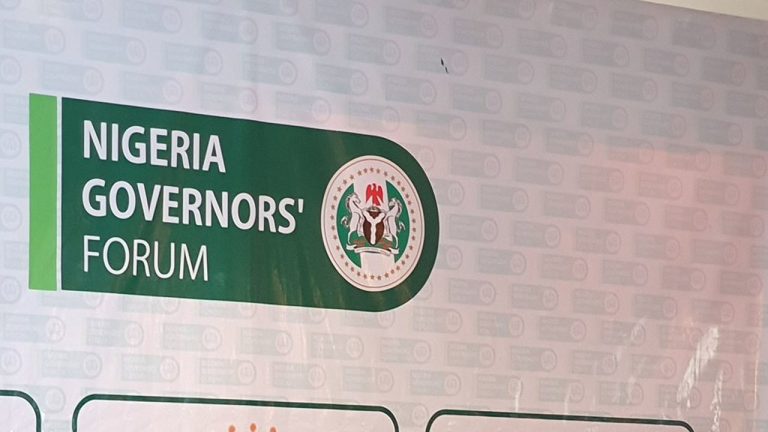•Ignoring federating units’ll hinder progress –Deputy Speaker
From Juliana Taiwo-Obalonye, Abuja
Governors under the auspices of the Nigeria Governors’ Forum (NGF) have acknowledged their key role in the constitutional amendment exercise and have committed to providing necessary feedback and input to facilitate smoother processes.
They made the commitment at the NGF’s 11th meeting on November 20, 2024, after a briefing on the ongoing constitutional amendment process by the Deputy Speaker of the House of Representatives, Benjamin Kalu, who is also the Chairman of the Committee on the Review of the Constitution.
The communique signed by the chairman of the Forum and Kwara State Governor, Abdulrahman AbdulRazaq, and read by Governor of Kaduna State, Uba Sani, in the early hours yesterday, said the Deputy Speaker highlighted the critical need for collaboration between state leaders and the committee.
The communique said Kalu proposed a ‘one-stop shop’ framework aimed at aligning state-level priorities with the constitutional review efforts. “The Deputy Speaker emphasised the importance of collaboration between the Forum and the Committee, proposing the establishment of a ‘one-stop shop’ framework to align state-level priorities with the constitutional review process. Governors pledged their support for the initiative and reaffirmed their commitment to actively engage in shaping amendments that strengthen Nigeria’s constitution.”
Speaking to journalists at the end of the presentation, Kalu expressed optimism about gathering public input through visits to various states and geopolitical zones, stating, “We want to ensure that this review process is inclusive and reflects the aspirations of all Nigerians.”
Kalu said he assured the governors that the engagement would not be a one-time affair but part of an ongoing dialogue aimed at fostering a more robust constitutional framework for Nigeria.
He said: “The governors are major stakeholders in this country and without the federating units, there is no Nigeria. If you ignore them, the wheel of progress toward realising this objective will be slowed down and we consider it important to come and engage with them and bring them up to speed, taking them through our work plan, including what we have achieved so far and where we are headed.
“We had a robust discussion. The governors made beautiful contributions and they are in support of the constitution review. We also informed them that we are going to be visiting their states and geopolitical zones to get the opinion of the public in various zones about the thematic areas of the constitution we are looking at.
“We informed them that we have received over 161 areas to amend in the constitution and we are going to give them the breakdown in the coming engagements. This won’t be the first and last engagement. We are going to have a couple of engagements.
“This is how we want to do it, different from how it has been done. From the beginning, we want them to have input and we have requested them to send us an anchor person, like a liaison officer. The person that will engage with the committee to bring their input closer to the committee than it used to be and take our feedback to them; that way, it will make it easier. By the time, this constitution review gets to the states, it won’t be a difficult issue having the State Houses of Assembly to do what they are supposed to do, with regard to the constitutional provision and the role they need to play with the two-thirds voting for it,” he said.
The Nigeria Governors’ Forum (NGF) also said in the committee that it engaged in a critical dialogue with the Minister of Education, Tunde Alausa, during the meeting, focusing on strategies to enhance the country’s education system.
The Minister highlighted significant challenges, including the alarming number of out-of-school children and high rates of learning poverty, particularly affecting the North-East and North-West regions.
Key proposals emerged from the discussions, emphasising the need for strengthened collaboration between federal and state governments.
The governors underscored the importance of improving girl-child education and integrating vocational training into the curriculum. Additionally, leveraging data and technology to enhance education management systems was identified as a priority.
The governors also reaffirmed their commitment to collaborating with the Federal Government and development partners to tackle these pressing issues, aiming to align efforts towards achieving Sustainable Development Goal 4 (SDG4), which focuses on ensuring inclusive and equitable quality education for all.
The newly elected governors of Edo and Ondo states, Monday Okpebholo and Lucky Aiyedatiwa, attended their first meeting of the NGF, following their recent electoral victories. The meeting, held in Abuja, provided a platform for the governors to engage with their counterparts on pressing national issues and strategies for governance.
